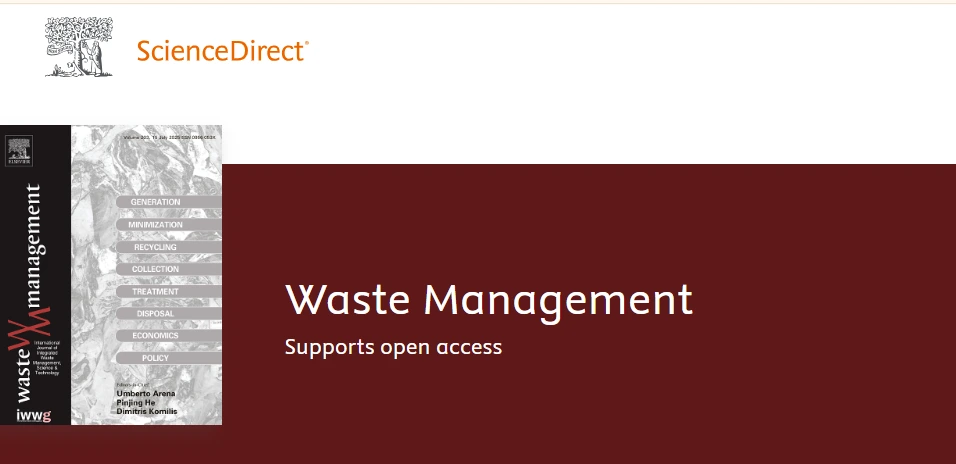Waste Management, a top-tier peer-reviewed journal from ScienceDirect focused on waste treatment, recycling, landfill management, and global sustainability practices.
Waste Management, published by Elsevier on the ScienceDirect platform, stands as one of the world’s most authoritative and widely cited journals in the field of environmental engineering and waste science. With a focus on all aspects of waste management—from treatment and recycling to policy and sustainability—this peer-reviewed journal serves as a critical platform for academics, engineers, policymakers, and environmental professionals working to shape the future of sustainable development.
Journal Overview
- Publisher: Elsevier (ScienceDirect)
- ISSN: 0956-053X
- Frequency: Monthly
- Editor-in-Chief: Dr. Fabio Fava
- Impact Factor: ~11.7 (2023)*, 7.1 (2024)
- Indexing: Scopus, Web of Science, PubMed, DOAJ, and more
*Note: Impact factors vary by year. Please refer to Clarivate or the journal’s homepage for the most up-to-date metric.
Scope and Aims
The Waste Management journal covers a comprehensive range of topics focused on solid waste, hazardous materials, and innovative disposal and recycling technologies. Its core objective is to facilitate the transition toward sustainable, circular waste systems through original research, critical reviews, case studies, and policy analysis.
Key areas include:
- Municipal solid waste (MSW) treatment and planning
- Industrial waste and e-waste recycling strategies
- Landfill design, leachate management, and emissions
- Biological and thermal treatment technologies
- Zero-waste and circular economy models
- Waste policy, governance, and behavioral studies
- Life cycle assessment (LCA) and environmental impact modeling
- Global South challenges in waste infrastructure
Article Types
Waste Management accepts the following types of scholarly submissions:
- Original Research Articles
- Critical Reviews
- Technical Notes
- Policy and Regulatory Papers
- Short Communications
- Editorials and Special Issue Submissions
The journal maintains a rigorous peer-review process to ensure the highest academic and scientific integrity.
Audience and Impact
The journal is intended for a global readership of:
- Environmental scientists and engineers
- Urban planners and municipal officials
- Waste management industry professionals
- Policymakers and regulators
- NGO and UN environmental researchers
- Graduate students in environmental studies, engineering, and sustainability
Given its cross-disciplinary approach, the journal significantly influences waste-related research, urban development strategies, and global sustainability goals such as SDG 11 (Sustainable Cities) and SDG 12 (Responsible Consumption and Production).
Why It Matters
As climate change, overconsumption, and pollution escalate, efficient waste management is more critical than ever. Waste Management provides the research-backed solutions, case studies, and policy insights necessary to move societies from linear to circular systems, reduce landfill reliance, and minimize ecological footprints.
By promoting innovation in waste technologies and spotlighting scalable solutions, the journal plays a crucial role in helping governments and businesses navigate the path toward environmental resilience.
Accessibility
All articles are available through ScienceDirect, and many are published under open access licenses, allowing for greater visibility and citation. Readers can search by keyword, issue, or author and download full-text PDFs for academic or professional use.
